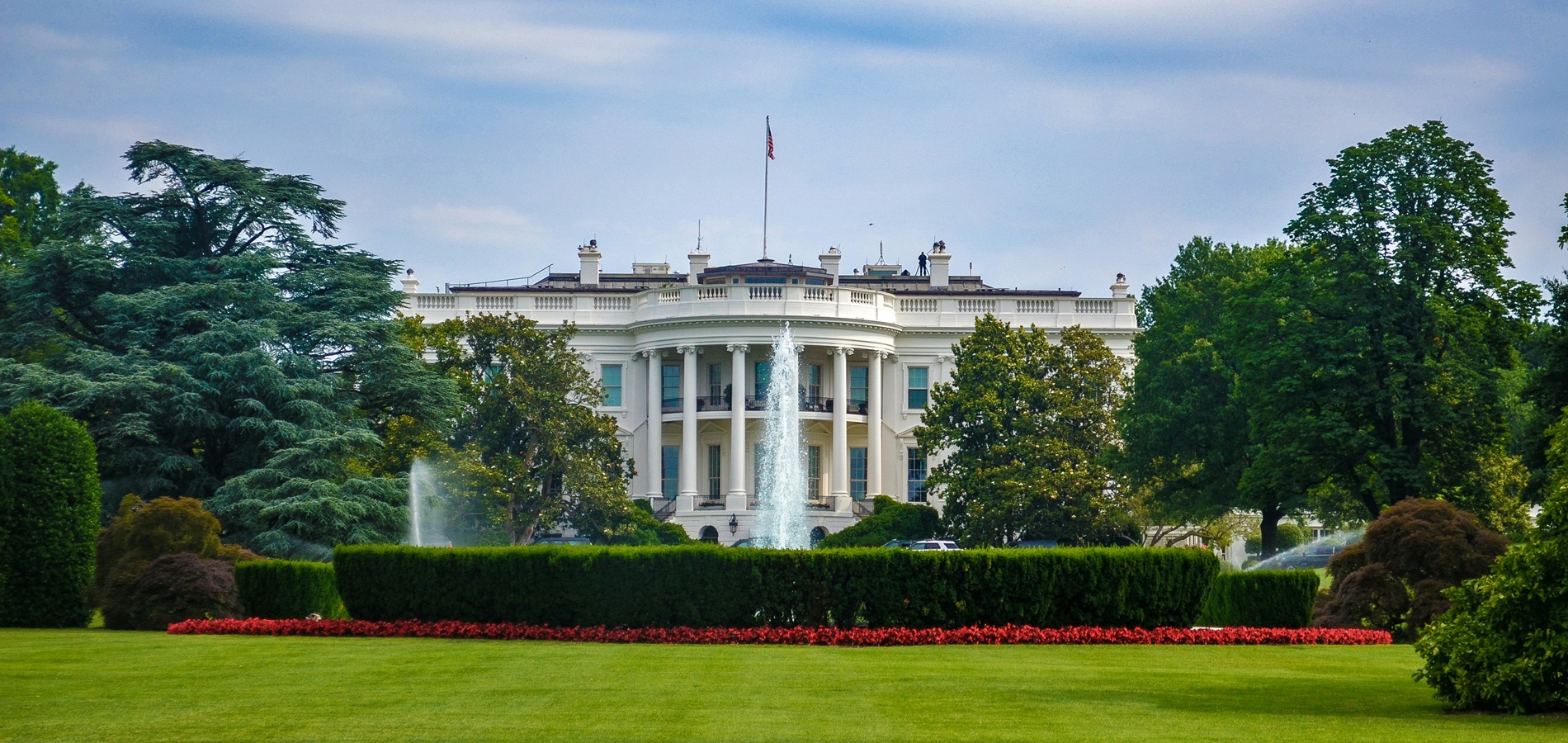Back in October we highlighted five critical issues that were being argued in the Supreme Court during the 2022-2023 term. Since then, the Court has issued major decisions that have sparked a flurry of media attention and ignited discussions surrounding the upcoming election. From voting rights, which lie at the heart of our democratic process, to the First Amendment, which safeguards our freedom of speech and religion, these issues resonate deeply with our society. In this blog, we’ll explore some of the implications of these landmark decisions.
Voting Rights
Allen v. Milligan
In a 5-4 decision, the Supreme Court ruled that the voting map for Alabama violated the Voting Rights Act.[1]To enforce the fifteenth amendment to the Constitution of the United States, and for other purposes., Public Law 89-110, 89 Congress. 79 Stat. 437 (1965). This document can be found in HeinOnline’s U.S. Statutes at Large database. Despite Black people accounting for 27% of the state’s population, the map displayed a single majority-Black district, while the remaining six districts were predominantly white. The new congressional map, expected to be in place for the 2024 elections, could have an impact on the future election, allowing Democrats to regain the House majority, now controlled by Republicans.
AFFIRM: Chief Justice John Roberts, Justices Sonia Sotomayor, Elena Kagan, Ketanji Brown Jackson, Brett Kavanaugh
DISSENT: Justices Clarence Thomas, Neil Gorsuch, Samuel Alito, Amy Coney Barrett
Moore v. Harper
In an unprecedented alignment of both conservative and liberal justices, the Supreme Court rendered a 6-3 opinion that the traditional “independent state legislature theory” does not hold true. The Court affirmed that state courts and state constitutions possess the authority to provide checks and balances on state lawmakers’ control over the conduct of congressional elections, as granted by the U.S. Constitution.[2]2020 Supplement Annotating Interpretations to Various Articles of the Constitution 5 (2023)
Article I: Legislative Department. This document can be found in HeinOnline’s World Constitutions Illustrated database.
AFFIRM: Chief Justice John Roberts, Justices Sonia Sotomayor, Elena Kagan, Amy Coney Barrett, Brett Kavanaugh, Ketanji Brown Jackson
DISSENT: Justices Clarence Thomas, Neil Gorsuch, Samuel Alito
HeinOnline Resource Spotlight: Interested in this topic? Browse and search through a collection of thousands of subject-coded titles that illustrate the nuances and complexities of elections and voting systems—the lifeblood of democracy—both in America and across the globe with our Voting Rights & Election Law database.
Affirmative Action
Students for Fair Admissions, Inc. v. President and Fellows of Harvard College
Students for Fair Admissions v. University of North Carolina
In 2003, in the case Grutter v. Bollinger,[3]Grutter v. Bollinger et al. , 539 U.S. 306, 395 (2003). This case can be found in HeinOnline’s U.S. Supreme Court Library. the Supreme Court ruled that universities can consider race to a limited extent when deciding on admissions, asserting that recognizing race is important for improving diversity. However, in a joint decision, the Supreme Court recently ruled that affirmative action admission policies of Harvard and the University of North Carolina are unconstitutional. While Harvard opened their doors in 1636, they did not admit Black undergraduates until 1847. Chief Justice John Roberts stated that these programs “unavoidably employ race in a negative manner, involve racial stereotyping, and lack meaningful end points.” Meanwhile, in her dissent, Justice Sotomayor said the Supreme Court “cements a superficial rule of colorblindness as a constitutional principle in an endemically segregated society where race has always mattered and continues to matter.”
AFFIRM: Chief Justice John Roberts, Justices Neil Gorsuch, Amy Coney Barrett, Clarence Thomas, Samuel Alito, Brett Kavanaugh
DISSENT: Justices Elena Kagan, Sonia Sotomayor, Ketanji Brown Jackson (recused from Harvard case)
Environmental Protections
Sackett v. EPA
In this particular case, the Supreme Court undertook the task of interpreting the Clean Water Act[4]To amend the Federal Water Pollution Control Act., Public Law 92-500, 92 Congress. 86 Stat. 816 (1972). This document can be found in HeinOnline’s U.S. Statutes at Large database. in order to clarify the specific types of wetlands that Congress intended the Environmental Protection Agency (EPA) to have jurisdiction over. In a unanimous decision, the Court ruled against the EPA, placing new limits on the Clean Water Act. In its ruling, the Court determined that for waters to receive protection under the Clean Water Act, they must demonstrate a “continuous surface connection” to significant lakes and rivers that impact interstate commerce.
AFFIRM: Chief Justice John Roberts, Justices Neil Gorsuch, Elena Kagan, Amy Coney Barrett, Clarence Thomas, Samuel Alito, Kavanaugh, Elena Kagan, Sonia Sotomayor, Ketanji Brown Jackson
HeinOnline Resource Spotlight: Interested in this topic? Water Rights & Resources is a highly editorialized and affordable database for understanding state & federal laws governing water.
First Amendment
303 Creative LLC v. Elenis
303 Creative was a website designer looking to create wedding announcement websites, but only wanted to do so for straight couples due to her religious beliefs. You may remember the 2018 ruling Masterpiece Cakeshop v. Colorado Civil Rights Commission,[5]Masterpiece Cakeshop, Ltd., et al. v. Colorado Civil Rights Commission et al., U.S. Reports 1 (2018). This document can be found in HeinOnline’s U.S. Supreme Court Library. where the Court ruled that a baker who refused to design a cake for a same-sex couple did not have the First Amendment right of free speech to discriminate against homosexual couples. However, this time around, in a 6-3 ruling the Court ruled in favor of the website designer. This recent case represents the latest contentious legal battle at the highest court, centering around the question of whether individuals can invoke the First Amendment as a means to evade compliance with anti-discrimination laws.
AFFIRM: Chief Justice John Roberts, Justices Neil Gorsuch, Amy Coney Barrett, Clarence Thomas, Samuel Alito, Brett Kavanaugh
DISSENT: Justices Elena Kagan, Sonia Sotomayor, Ketanji Brown Jackson
HeinOnline Resources Spotlight: Interested in this topic? Peruse a collection of materials relating to the gay rights movement in America, including an interactive timeline, as well as subject-coded court cases, scholarly articles, books, pamphlets, reports, and more in our perpetually free LGBTQ+ Rights database.
Student Loan Debt
Biden v. Nebraska
In the very last decision of the 2022-2023 Supreme Court term, the Court blocked President Joe Biden’s plan to cancel close to $430 billion in federal student debt. In a 6-3 decision, the Court ruled that the Secretary of Education did not have the power to waive student loans under the HEROES Act[6]Higher Education Relief Opportunities for Students Act of 2003., Public Law 108-76, 108 Congress. 117 Stat. 904 (2003). This document can be found in HeinOnline’s U.S. Statutes at Large database.. Back in August 2022, Biden invoked the HEROES Act[7]Biden Administration’s One-Time Student Loan Debt Relief Policy (April 5, 2023). This document can be found in HeinOnline’s U.S. Congressional Documents database. as the basis for his executive authority to forgive loans. President Biden responded to the Supreme Court’s decision by pledging a new effort to cancel student loans by utilizing the Higher Education Act of 1965. [8]To strengthen the educational resources of our colleges and universities and to provide financial assistance for students in postsecondary and higher education., Public Law 89-329, 89 Congress. 79 Stat. 1219 (1965). This document can be found in … Continue reading
AFFIRM: Chief Justice John Roberts, Justices Neil Gorsuch, Amy Coney Barrett, Clarence Thomas, Samuel Alito, Brett Kavanaugh
DISSENT: Justices Elena Kagan, Sonia Sotomayor, Ketanji Brown Jackson
The SCOTUS Insider
Subscribe to the American Bar Association’s Preview of United States Supreme Court Cases, exclusively in HeinOnline, and unlock a world of invaluable knowledge and unparalleled insights. Be prepared for the next term and secure your subscription to Preview, for less than $200/year!
Pricing
Organizations: $180.00
Undergraduate/Law Students: $25.00
K-12 Teachers: $25.00
Individuals (Non-ABA Members): $135.00
Individuals (ABA Members): $130.00 $67.50
Hard-Bound Volume*: $80.00
HeinOnline Sources[+]
| ↑1 | To enforce the fifteenth amendment to the Constitution of the United States, and for other purposes., Public Law 89-110, 89 Congress. 79 Stat. 437 (1965). This document can be found in HeinOnline’s U.S. Statutes at Large database. |
|---|---|
| ↑2 | 2020 Supplement Annotating Interpretations to Various Articles of the Constitution 5 (2023) Article I: Legislative Department. This document can be found in HeinOnline’s World Constitutions Illustrated database. |
| ↑3 | Grutter v. Bollinger et al. , 539 U.S. 306, 395 (2003). This case can be found in HeinOnline’s U.S. Supreme Court Library. |
| ↑4 | To amend the Federal Water Pollution Control Act., Public Law 92-500, 92 Congress. 86 Stat. 816 (1972). This document can be found in HeinOnline’s U.S. Statutes at Large database. |
| ↑5 | Masterpiece Cakeshop, Ltd., et al. v. Colorado Civil Rights Commission et al., U.S. Reports 1 (2018). This document can be found in HeinOnline’s U.S. Supreme Court Library. |
| ↑6 | Higher Education Relief Opportunities for Students Act of 2003., Public Law 108-76, 108 Congress. 117 Stat. 904 (2003). This document can be found in HeinOnline’s U.S. Statutes at Large database. |
| ↑7 | Biden Administration’s One-Time Student Loan Debt Relief Policy (April 5, 2023). This document can be found in HeinOnline’s U.S. Congressional Documents database. |
| ↑8 | To strengthen the educational resources of our colleges and universities and to provide financial assistance for students in postsecondary and higher education., Public Law 89-329, 89 Congress. 79 Stat. 1219 (1965). This document can be found in HeinOnline’s U.S. Statutes at Large database. |



